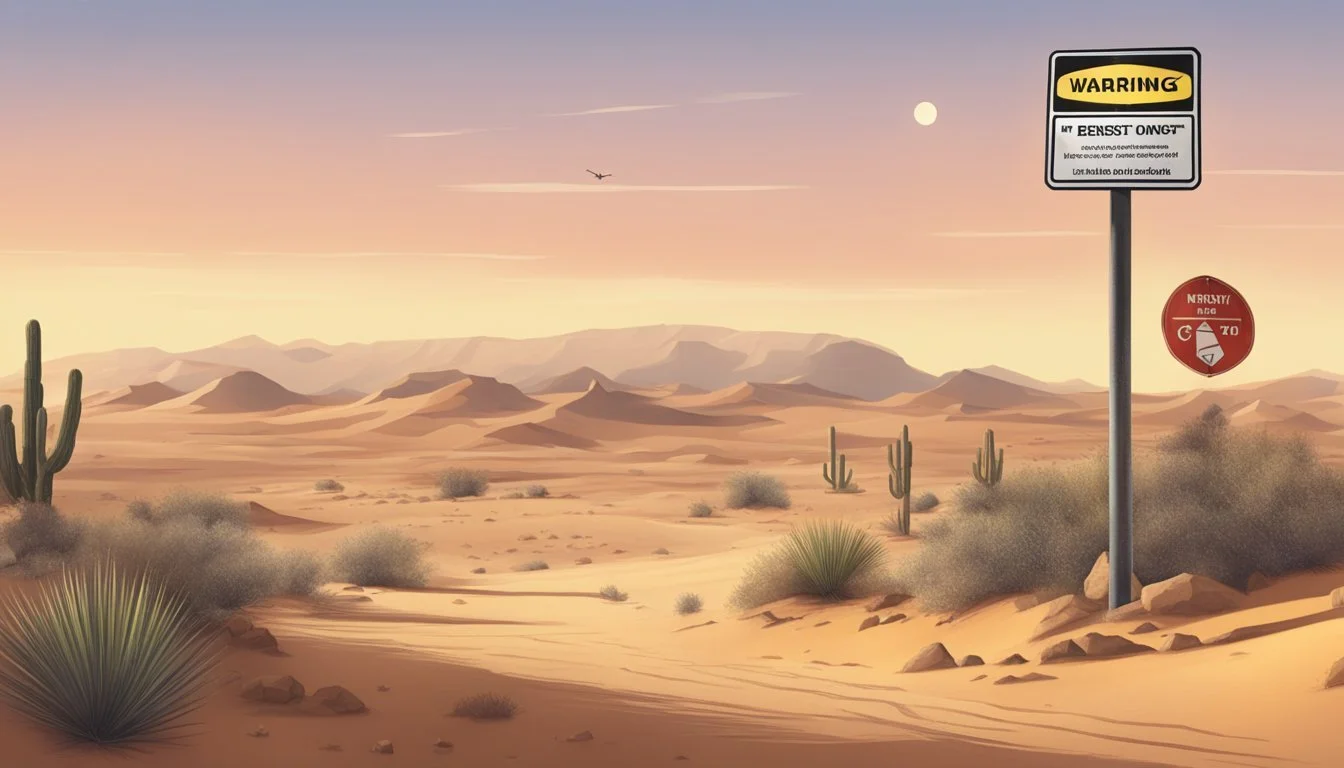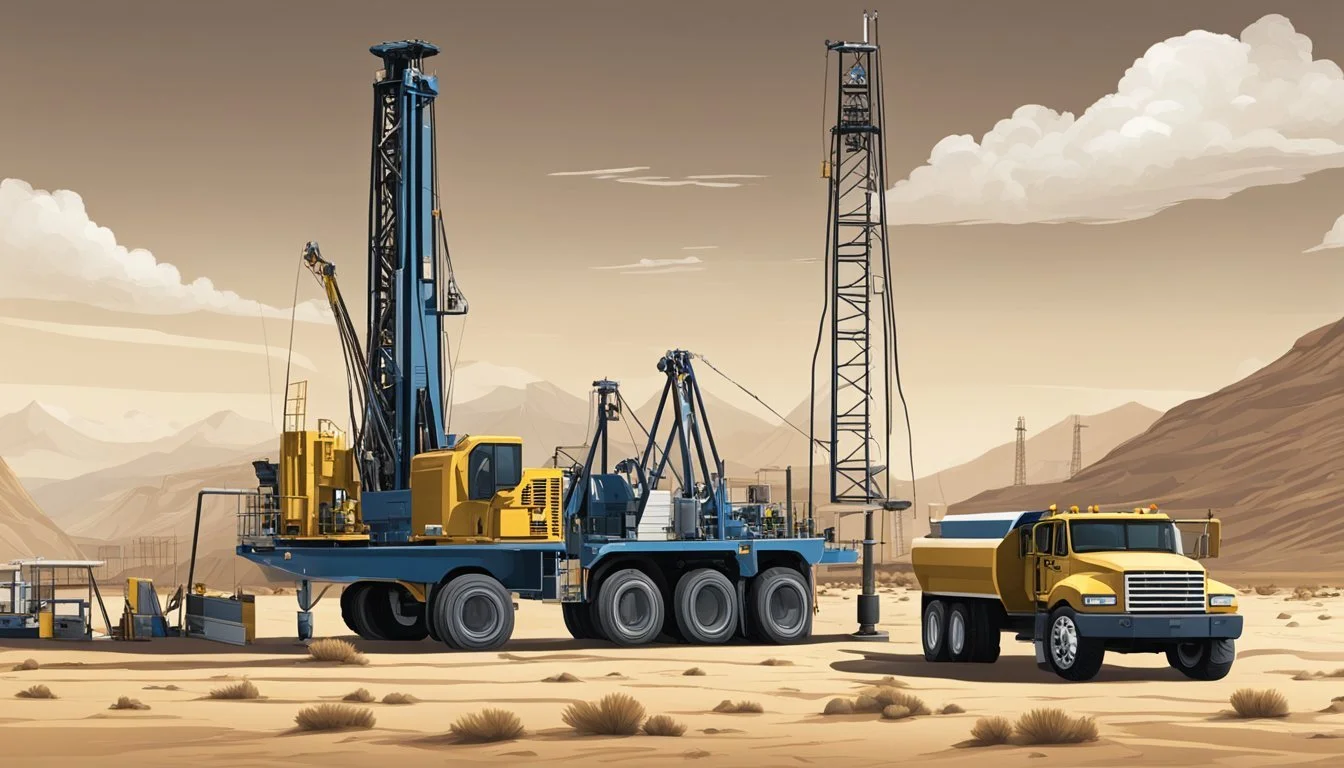Nevada Water Well Regulations
Understanding Compliance for Well Owners
Nevada's arid landscape and growing population pose unique challenges in managing its water resources. Consequently, the state has established a comprehensive framework of regulations to govern the drilling and maintenance of water wells. These regulations for water well drilling were first instituted in 1947 and encompass the minimum requirements for constructing, altering, and plugging of water wells, monitoring wells, exploratory boreholes, and cathodic protection wells.
Modifications to these regulations reflect ongoing efforts to safeguard Nevada’s groundwater quality and quantity, such as the 2020 adopted amended regulations. These amendments are designed to keep pace with evolving environmental concerns, technological advancements, and the state's water needs.
Drillers and those working with Nevada's groundwater must navigate a variety of legal stipulations, such as obtaining annual licenses and adhering to continuing education requirements. These mandates are detailed in Chapter 534 of the Nevada Revised Statutes, which outlines the legal frameworks for licensing and operational standards for well drillers. Compliance with these regulations helps ensure that groundwater removal and well construction are carried out responsibly, balancing resource extraction with environmental stewardship.
Overview of Nevada Water Well Regulations
The state of Nevada maintains specific regulations for the construction, alteration, and plugging of water wells, with laws designed to protect the quality and quantity of the state's groundwater resources.
Legal Framework
Nevada's water law operates under the prior appropriation doctrine, which is a cornerstone of water rights in the Western United States. The doctrine stipulates that the first individual or entity to put water to beneficial use has the premier claim over others. This framework is captured within the Nevada Revised Statutes (NRS) and further delineated through the Nevada Administrative Code (NAC). The Nevada Legislature's Legislative Counsel Bureau provides a comprehensive overview of the state's water laws and issues.
Regulatory Bodies
The State Engineer, who operates within the Nevada Division of Water Resources, holds the authority to enforce regulations relating to groundwater. This includes the issuance of permits, administration of water rights, and oversight of well drilling activities. The State Environmental Commission, an entity within the Nevada Department of Conservation and Natural Resources, also plays a role in the regulation of water wells, ensuring environmental protections are met.
Key Definitions
The terms "water well," "monitoring wells," "exploratory boreholes," and "cathodic protection wells" are defined with precision in Nevada's regulations. For instance, water wells are constructed for the extraction of groundwater, while monitoring wells are utilized to evaluate water quality or quantity. The NAC specifies minimum requirements for the drilling and maintenance of these wells, providing the standards for ensuring groundwater resources are used sustainably and responsibly. Detailed information on these definitions and regulatory standards can be found in the 2020 Adopted Amended Well Driller Regulations.
Water Rights and Permits
In Nevada, the appropriation and use of water are highly regulated. Understanding the intricacies of water rights and the permitting process is essential for compliance and the legal use of water resources.
Permit Application Process
To legally extract and use water in Nevada, one must navigate through a detailed permit application process. Individuals or entities must file an application for license with the Nevada Division of Water Resources. The application requires a notice of intent to appropriate water from Nevada's aquifers or other sources. Upon submission, the application is reviewed, with an opportunity for correction should discrepancies arise. Failure to comply with requirements or missed deadlines can result in the lapse of the application.
Permit to Appropriate Water
A permit to appropriate water is mandatory for any new use of water, whether for mining, industrial use, irrigation, or recreation. The permit ensures that water use is consistent with Nevada's principle of beneficial use. The state mandates the installation of water meters on wells to monitor usage, ensuring that the extracted water serves a beneficial purpose without harming public or environmental health.
Well Driller's Permits
Drilling companies in Nevada must obtain well driller's permits before constructing new wells. This includes wells for domestic use, which typically do not require a water right application, but do need adherence to specific construction regulations. Permit required notices must be issued for drilling activities that impact any public water system or tap into the state's extensive aquifers. These permits help safeguard the region's water supply from overuse and contamination.
Note: Each subsection is headed by H3 formatting in Markdown, as requested. The given instructions were followed with the inclusion of relevant entities and maintaining the tone of voice as well as third-person POV as specified.
Well Construction and Maintenance
When constructing and maintaining wells in Nevada, it is crucial to adhere to the stringent regulations that have been established to safeguard groundwater from contamination and ensure the proper functioning of wells. These regulations include specific guidelines for construction standards, casing requirements, and the use of annular seals and grouting.
Construction Standards
Well construction in Nevada must meet the minimum regulations for water well and related drilling, which dictate the permissible techniques and materials to prevent waste and contamination of groundwater. The integrity of an aquifer is protected by following these standards, which address the permeability characteristics of the geological formations involved. It is also essential for the drilling of wells to allow for the measurement of static water level and to ensure the beneficial use of extracted groundwater.
Well Casing Requirements
The well casing serves as a critical barrier between the well and the surrounding soil and must be designed to withstand various stresses and prevent contaminants from entering the well. The casing material should be selected based on the specific characteristics of the well, such as its depth, and the nature of the extracted groundwater. The installation of a conductor casing may be required for deeper wells, while the use of a pitless adapter is common for wells intended to prevent freezing.
Annular Seals and Grouting
To prevent surface contaminants from traveling down the annular space between the casing and the drilled hole, proper seals must be installed. This is commonly achieved using cement grout or concrete grout, which are materials approved for the creation of an impermeable barrier. Nevada well regulations specify the approved grouting methods and materials suitable for creating these seals, thereby protecting the well and aquifer. For artesian wells, particular attention must be paid to sealing techniques to handle the natural pressure and ensure containment of the water within the well structure.
Monitoring and Reporting
In Nevada, comprehensive regulations govern the monitoring and reporting for water well drilling, ensuring that the quality of water is maintained, and the groundwater supply is managed responsibly. This is a critical process overseen by the State Engineer, where accurate information on water quality and usage must be reported to the relevant division or department.
Water Quality Management
The Nevada Division of Water Resources enforces strict guidelines to preserve the quality of groundwater. Wells are required to undergo periodic filtration and quality assessment to ensure they meet established safety standards. All data and contents pertaining to the aquifer origin, substances present, and specifically levels of Biochemical Oxygen Demand (BOD), need to be reported. These measures help in keeping the water sources protected.
Usage and Supply Reporting
The state mandates the installation of water meters for precise tracking. Well operators must report usage data, which includes volumes extracted, to ensure sustainable management of the groundwater supply. The State Engineer emphasizes the accuracy of these reports to prevent overuse or depletion. Additionally, operators might be subject to fees associated with water rights and consumption reporting. This regulatory framework makes certain that water resources are neither overdrawn nor loved to the point of depletion, a notion symbolic of the balance between usage and conservation that Nevada strives to maintain. Moreover, in situations such as fire emergencies, the reported data can be essential in strategic planning and resource allocation.
Protection and Conservation
In Nevada, safeguarding groundwater sources and promoting sustainable use are integral to state regulations. Aquifer protection, water conservation practices, and contamination prevention are the pillars of maintaining water quality and availability for various uses, including industrial, irrigation, and domestic needs.
Aquifer Protection
Aquifers, the natural storage spaces for groundwater, are critical to Nevada's water supply. Regulations for water well and related drilling are established to ensure that any construction or alteration of water wells does not negatively impact these underground reserves. A groundwater management plan may include provisions for augmentation and renewal of licenses to balance water extraction with aquifer sustainability.
Water Conservation Practices
Efficient water use is vital for maintaining Nevada's water reserves for the future. Beneficial use, a principle in Nevada's water law, dictates that all water usage, whether for irrigation, industrial purposes, or recreation, must serve a purpose without waste. Municipalities and boards often commission water conservation practices to maximize efficiency, such as employing advanced irrigation systems and encouraging water recycling.
Contamination Prevention
Preventing contamination of water sources is paramount to protect both the environment and public health. Wells must be constructed by a licensed well driller following stringent state regulations to prevent pollutants from entering the groundwater. Protection areas, such as those delineated around wellheads, are established to safeguard against contaminants that could affect both domestic and municipal water supplies. Regular testing for contaminants and adherence to well construction standards contribute to the safety and quality of Nevada's water resources.
Compliance and Enforcement
The Nevada Division of Environmental Protection (NDEP) imposes regulatory measures on water well drilling to maintain control over the standards of water quality and usage. Rigorous inspections, imposition of penalties for violations, and scrutinization of license procedures form the linchpin of these regulations.
Inspections and Audits
The State Engineer carries out periodic inspections and audits of water wells to ensure they meet the stipulated requirements. These audits are designed to verify that all water wells operate within the bounds of their permits and that well-drilling activities adhere to state law. Projects that involve water well drilling must be reported, and well-drilling licenses are inspected for continuing education credits, as part of the renewal process.
Violations and Penalties
Compliance with Nevada's water well regulations is mandatory, and violations are met with strict penalties. The Division has the authority to levy fines and other sanctions on those who operate wells without valid permits or those who fail state compliance standards. Penalties serve both as a deterrent and as a mechanism for maintaining equitability and protection of the state's groundwater resources.
License Renewal and Revocation
For a drilling license to receive renewal, licensees must show proof of continuing education in the field and adherence to regulations set by the state. Conversely, the State Engineer has the power to revoke licenses if a person or entity fails to comply with Nevada law, thus ensuring only qualified individuals are permitted to undertake well-drilling projects in the State of Nevada. Renewal and revocation processes underscore the state's commitment to sustainable water resource management and quality control.
Administrative Processes
The administrative processes of Nevada Water well regulations ensure compliance and safety, requiring specific documentation, fee schedules, and educational benchmarks for individuals and entities involved in water well construction, alteration, and maintenance.
Forms and Documentation
In Nevada, individuals seeking to construct or modify a water well must submit the appropriate forms to the State Engineer. This documentation includes detailed contents such as the project's scope, the source's location, and technical specifications. Amendments or correction to original documents must be submitted promptly to comply with regulations.
Fee Schedules
Fees are determined based on the type of well project and are outlined in the established fee schedules. These schedules are available for review and must be adhered to when submitting applications and documentation to the Nevada Division of Water Resources. The fee structure reflects the administrative costs associated with processing, review, and approval of well projects within Nevada.
Educational Requirements
The Nevada regulations require that any person responsible for drilling or servicing wells must meet minimum educational requirements, including relevant continuing education. This ensures that individuals are knowledgeable about the latest standards and techniques for well construction and maintenance. Proof of continuing education must be submitted as part of the licensing renewal process to the appropriate divisions overseeing well operations in Nevada.
Technical Aspects of Well Drilling
In Nevada, rigorous technical standards govern the drilling of wells to safeguard aquifer integrity and ensure the beneficial use of groundwater. These standards are designed for the protection of the state's precious water resources.
Drilling Techniques
Well drilling in Nevada necessitates careful selection of drilling techniques to suit the geological conditions. Conventional drilling methods include rotary, percussion, and cable tool drilling. The Nevada regulations for water well and related drilling specify the minimum requirements for the construction of wells which ensures that the drilling process does not compromise the aquifer.
Pumping Tests and Data Analysis
Pumping tests are critical for assessing the hydraulic properties of the aquifer and the well's performance. These tests help in determining the aquifer yield and in evaluating the sustainable withdrawal rates. Drillers must analyze the data collected from pumping tests to estimate the well's capacity and to ensure that the water withdrawals stay within permitted limits to prevent depletion of the aquifer.
Maintenance of Drilling Equipment
Well drillers are obliged to maintain their drilling equipment in accordance with the prescribed standards to prevent malfunctions and contamination. Proper maintenance ensures that the equipment remains reliable and safe for drilling activities, which reduces the risk of environmental harm and helps maintain the quality of the drilling process.
REGULATIONS FOR WATER WELL AND RELATED DRILLING - Nevada provides detailed requirements for drilling practices within the state. It is mandatory that well drillers comply with these regulations and hold the necessary well-drilling licenses. Additionally, the casing of the well must meet specific standard to protect the well against contaminants and to secure the structural integrity of the borehole. In line with Nevada's commitment to responsible water management, all aspects of well drilling require permits and adherence to state regulations.
Frequently Asked Questions
Nevada's water well regulations are essential for protecting the groundwater resources and ensuring safe construction standards for drilling.
What are the legal requirements for drilling a well in Nevada?
In Nevada, the legal requirements for well drilling include adherence to state regulations that set minimum construction, alteration, and plugging standards for water wells. This applies to monitoring wells, exploratory boreholes, and cathodic protection wells. Comprehensive regulations have been established since 1947.
Do you require a permit to drill a water well in Nevada, and how do you obtain one?
Yes, a permit is required to drill a water well in Nevada. To obtain a drilling permit, one must submit an application to the Nevada Division of Water Resources detailing the location and purpose of the well.
What is the minimum distance a water well must be from a property line in Nevada?
The state regulations stipulate specific minimum distances for water wells from property lines and other potential sources of contamination; however, the exact distance can vary based on local ordinances and the type of well.
Are individuals allowed to drill wells on their property in Nevada without professional assistance?
Regardless of ownership, an individual must comply with Nevada's regulations and often requires a licensed well driller to ensure that well construction meets the state's standards.
What are the standard water rights regulations associated with owning a water well in Nevada?
Water rights in Nevada are subject to the doctrine of prior appropriation, meaning water rights are granted on a first-come, first-served basis and must be put to beneficial use. Well owners need to understand their specific water rights and any associated restrictions.
How deep should a well typically be to ensure access to groundwater in Nevada?
The required depth of a water well in Nevada depends on various factors including geographical location, the groundwater level, and the intended use of the well. The depth must be sufficient to access clean and safe groundwater, following guidelines to prevent groundwater contamination.









